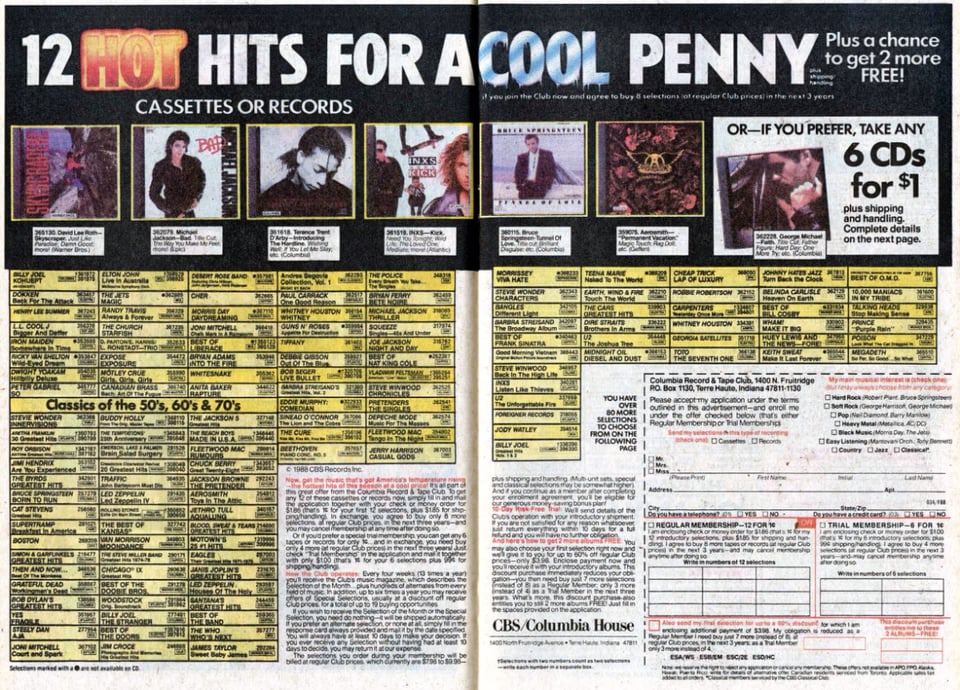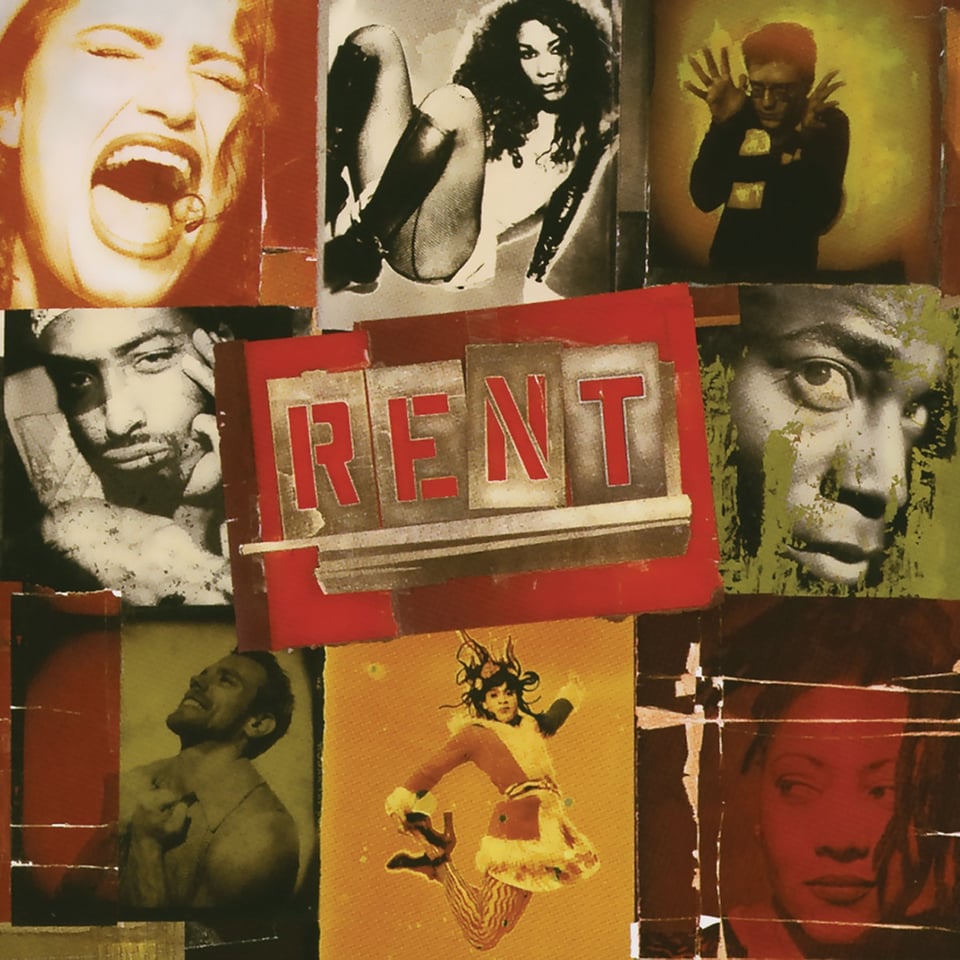The Vulnerability of an Acoustic Guitar on Broadway
Or is this what I owe to Jonathan Larson and Rent
Man, I really cornered myself with the theme for the newsletter and show for this week.
Let's take it back to a golden age!
Have I mentioned how much I owe to the Columbia House mail order CD scheme?

This was how I heard The Clash's London Calling. The Dead Man Walking soundtrack. And the original Broadway cast recording of Rent. An immediate shout out Jesse L. Martin who would inhabit my life from this CD and his exceptional performance as Detective Green on Law & Order, the show that arguably raised me.
The two-CD Rent original cast recording came into our family when I was maybe in 7th or 8th grade. The album artwork captured my imagination before any of the music did. It's this collage-like, 3x3 grid of individual photos of the main cast, with smudges, cuts taped together, and pre-photoshop artifacting. Maureen's photo so expressive you can hear the might of her voice through the image. Mimi, brother, Mimi dead center in the top third. Mark. Collins. Benny. Roger. Angel. And Joanne.
These characters became my friends, and welcomed me into a style of music I wasn't completely prepared to fall in love with.

I was lucky enough to eventually see a production of Rent with my family in Stamford, CT--I think one of the dudes from N'Sync was Mark.
But before I actually saw it live, the music from Rent was building an infrastructure in my brain that would support my lifelong love for a particular kind of Broadway music. Much of that love anchored around how modern Broadway productions exploit the acoustic guitar for immediate emotional vulnerability.
Jonathan Larson, the mastermind behind Rent, clearly understood how to leap through musical preamble and push listeners over the edge immediately with his arrangements.
The musical begins with a guitar, is anchored by a guitar. Our hearts are split into 8000 pieces by a guitar throughout the production. There are full band performances. But the guitar is the soul of Rent, and especially when it is acoustic.
The acoustic guitar is a transparent instrument. To center a song around an acoustic arpeggio or even chords is so risky. You hear everything when someone is playing an acoustic. An electric guitar is less revealing, more easily masking errors. But an acoustic guitar shows everything. It's like the instrumental equivalent of walking outside and saying "this is the best I can do today."
Listen to "Will I". Granted, this is a very intense song regardless of the instrumentation. The context is an AIDS support group singing in round supported by a repeating acoustic arpeggio. If it were a cappella, it would still be sorrowful, but the acoustic guitar chiming in the background almost explains to the listener "you will literally feel e v e r y t h i n g at once in these 2 minutes and 30 seconds."
Modern Broadway performances in general have made expert use of the acoustic guitar as an instantaneous emotional intensity delivery vehicle.
There is Once, with its commitment to the ruptured heart core of Irish folk music. A musical which I was lucky enough to see on Broadway, about a third of which I listened to through my shirt because I was in tears.
There's Waitress, the creator of which will probably require her own newsletter entry at some point, because Sara B, man, she's a legend.

Appropriately, modern Broadway compositions borrow from popular music contexts because it captures broader audiences. But the exploitation of the acoustic guitar as a kind of conductor of feeling stands apart from how modern it is. Orchestras are acoustic instruments, but they are all generally supported by each other.
An acoustic guitar is usually completely alone. This is sort of why I love baseball so much. There is a persistent sense of aloneness at any point in the game as the play is determined by a series of individual people who for a few seconds have the world on their back until they throw the ball away.
Live theater is an insanely vulnerable experience. Live musical theater additionally. And for a modest instrument like the acoustic guitar to determine the emotional complexity of the music is beautifully horrifying.
If you want to continue the discussion, send me an email or put it through the snail mail
HERE TO LISTEN LLC
PO BOX 725
BRATTLEBORO, VT 05302
You can listen to the radio show on Brattleboro's community station WVEW every Sunday at 12pm EST
Here to Listen show archives are available here
You can buy Here to Listen merch here
